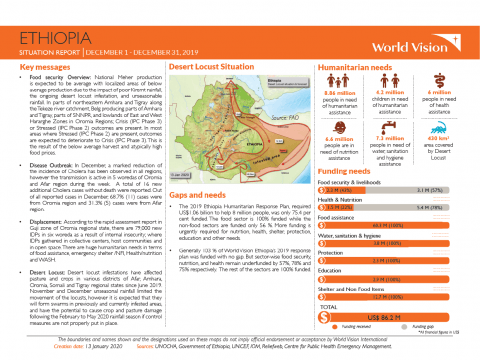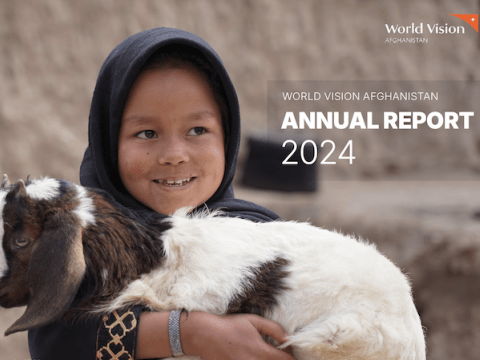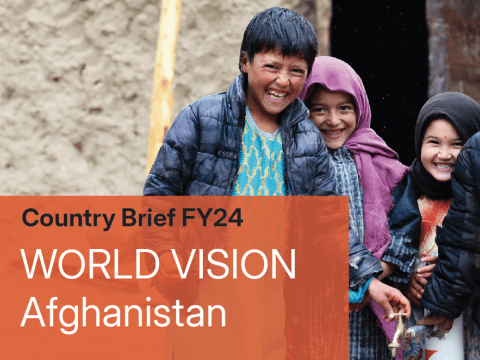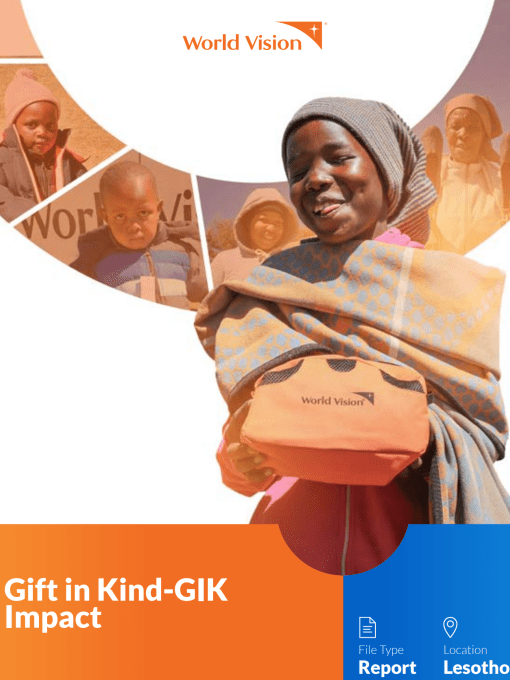Ethiopia - December 2019 Situation Report
Download
- Food Security Overview: National Meher production is expected to be average with localized areas of below average production due to the impact of poor Kiremt rainfall, the ongoing desert locust infestation, and unseasonable rainfall. In parts of northeastern Amhara and Tigray along the Tekeze river catchment, Belg producing parts of Amhara and Tigray, parts of SNNPR, and lowlands of East and West Hararghe Zones in Oromia Regions; Crisis (IPC Phase 3) or Stressed (IPC Phase 2) outcomes are present. In most areas where Stressed (IPC Phase 2) are present, outcomes are expected to deteriorate to Crisis (IPC Phase 3). This is the result of the below average harvest and atypically high food prices.
- Disease Outbreak: In December, a marked reduction of the incidence of Cholera has been observed in all regions, however the transmission is active in 5 woredas of Oromia and Afar region during the week. A total of 16 new additional Cholera cases without death were reported. Out of all reported cases in December, 68.7% (11) cases were from Oromia region and 31.3% (5) cases were from Afar region.
- Displacement: According to the rapid assessment report in Guji zone of Oromia regional state, there are 79,000 new IDPs in six woreda as a result of internal insecurity; where IDPs gathered in collective centers, host communities and in open space. There are huge humanitarian needs in terms of food assistance, emergency shelter /NFI, Health/nutrition and WASH.
- Desert Locust: Desert locust infestations have affected pasture and crops in various districts of Afar, Amhara, Oromia, Somali and Tigray regional states since June 2019. November and December unseasonal rainfall limited the movement of the locusts, however it is expected that they will form swarms in previously and currently infested areas, and have the potential to cause crop and pasture damage following the February to May 2020 rainfall season if control measures are not properly put in place.
Share



